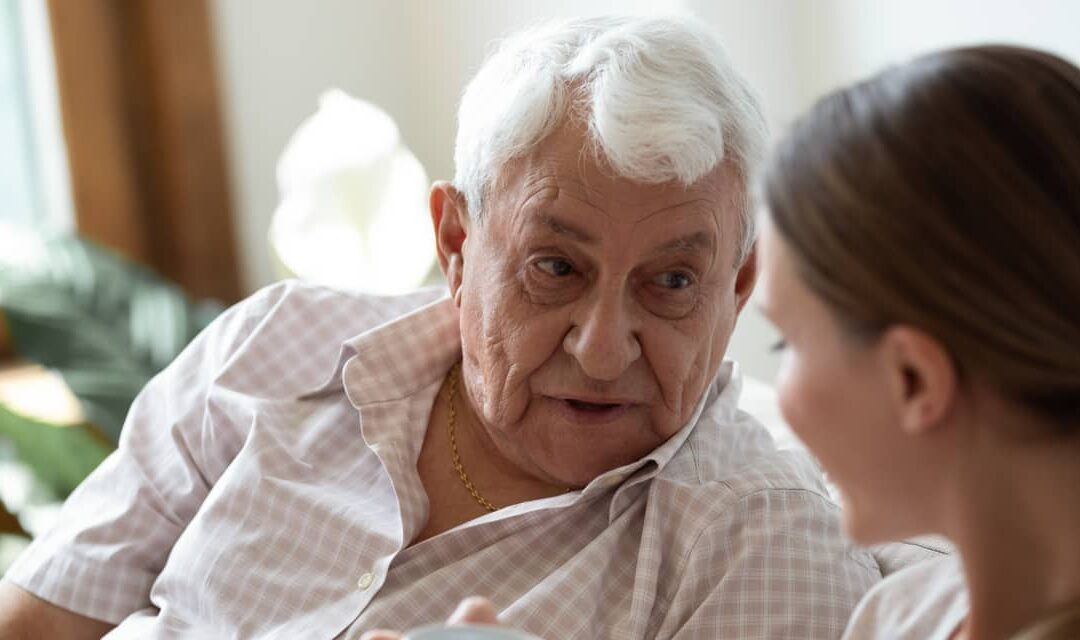A friend asked for suggestions for a Christmas gift for her stepfather, who has Alzheimer’s disease. Because her stepfather’s abilities have changed so much in the past few years, she wasn’t sure what would be appropriate. She also wanted a gift that would help her mother, who is her stepdad’s main caregiver.
A good approach is to find a gift that will appeal to the person’s interests, but with an awareness of how they are changing as a result of their disease, experts say.
“Holidays and celebrations can be joyous, but for families with Alzheimer’s, these times can also be stressful,” said Monica Moreno, senior director of care and support at the Alzheimer’s Association.
It’s thoughtful and loving to include someone with dementia in holiday celebrations, but remember that because the disease is progressive, you need to find gifts that meet a person where they are, she said.
Shopping for gifts for a person with Alzheimer’s doesn’t have to feel overwhelming, said Teepa Snow, an occupational therapist, advocate for people living with dementia and founder of Positive Approach to Care, an organization that aims to change the culture of dementia care. “What abilities do they still have and what have they lost? There are so many variables, and we may feel uncomfortable. Just start small and simple.”
When choosing a gift, think of your loved one and the hobbies, interests and things they enjoyed in the past, and go from there.
Music
Make a few playlists for different moods: songs for relaxing, songs for getting active and songs from the old days. If your loved one enjoys making music, a basic instrument like a bongo drum or a rainstick can be fun, Snow said. Get more than one so they can play music with someone else.
Scale the gift to align with what they can enjoy, Moreno said. “If they liked music, you wouldn’t get them a music book, but maybe you could get them some music by their favorite conductor.”
Food and drinks
A coffee lover might not be able to make their favorite brew anymore, but instant coffee might be more their speed. You can add a sturdy cup with a lid so they can drink the coffee without worrying about spills.
There are lots of Advent calendars filled with chocolates, candy, cheese and other goodies available during the holiday season, giving a loved one something small to open each day. A subscription to a monthly delivery of a favorite thing — pickles, fruit, cookies, nuts — is a way to make the gift last for many months.
Clothing
Choose clothing in soft fabrics that is easy to put on and take off. Think mittens instead of gloves, pants with elastic waistbands, Velcro instead of buttons. Err on the side of a looser fit rather than tighter.
Photography
A person who spent their life appreciating classic cars might enjoy a calendar with pictures of retro cars to look at all year. A world traveler might like a photo book of places they visited or dreamed of going to. Decks of playing cards with photos on them can be used for playing games, and the pictures themselves can also be entertaining.
Or put together a box of old photos and cards that your loved one can look through. It may or may not spark memories, but it can be a comfort and a conversation starter.
Media
There are some television services are created specifically for people with cognitive decline. Zinnia TV, Memory Lane TV and My Life TV are subscription services that have simple videos featuring animals, babies, art and nature.
DIY gifts
Keep things simple. Instead of a bouquet of flowers, you might give just one flower. If a jigsaw puzzle is too complex, cut up the box of a favorite cereal into a few pieces. Some people enjoy sorting things, so a container of nuts and bolts to combine and take apart may be enjoyable. Others may enjoy pairing baby socks. Snow had one client who enjoyed tinkering with an old typewriter that needed to be fixed.
Time
The best gift you can give is the gift of time, Snow and Moreno both said. If you give someone music, sit with them and listen to it together. Look through the photo book, work on the puzzle, share a cup of coffee. Not only is it nice to spend time with your loved one, it gives their caregiver a break.
“That’s the greatest gift for caregivers,” Moreno said. “It gives them a chance to take care of themselves.”
Alzheimer’s is an isolating disease, but there are resources for families who are struggling. Caregivers can call 800-272-3900, 24 hours a day, seven days a week, with general questions and for care consultations. AlzConnected is a free online community, hosted by the Alzheimer’s Association, for people living with dementia and their caregivers.
Now read: Want some family fun? Try new games with a generational twist.









